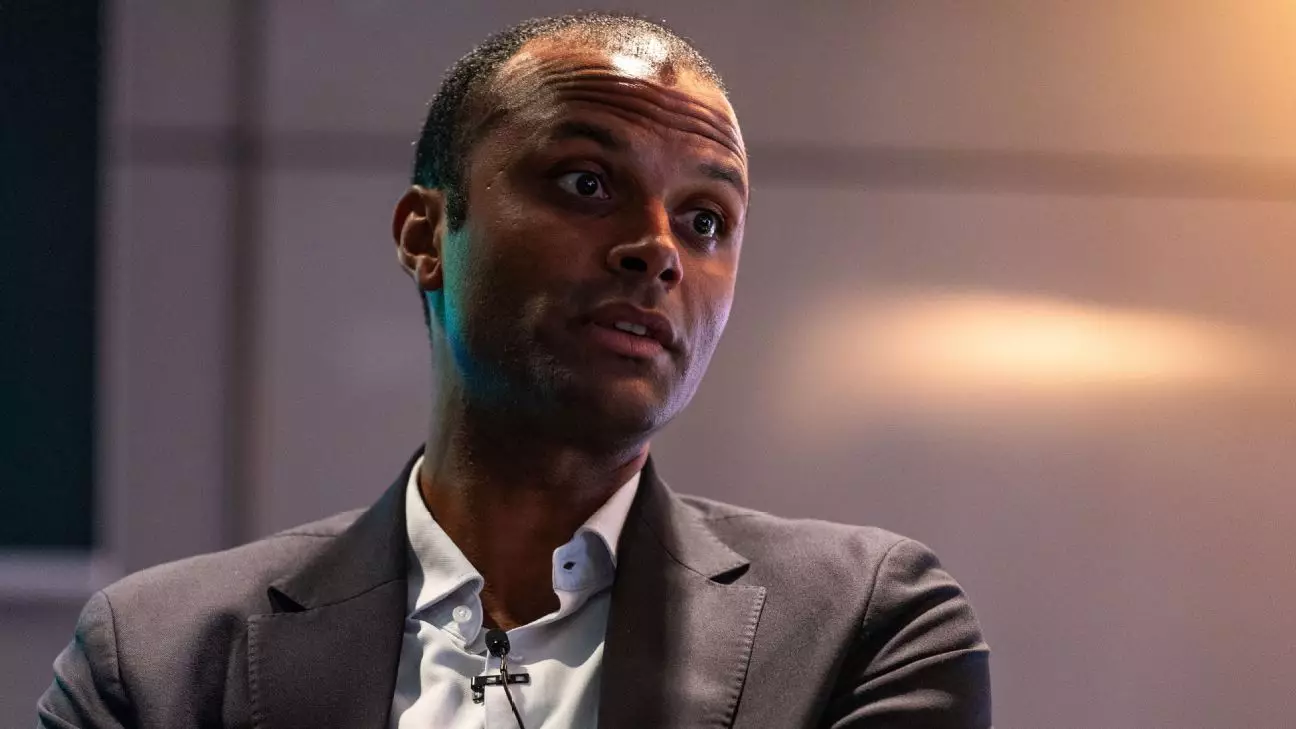The ongoing saga of player burnout in professional football has reached a boiling point, with increasing calls for systemic changes to combat the excessive workload that threatens the future of the sport and the health of its most talented athletes. Maheta Molango, the chief executive of the Professional Footballers’ Association (PFA), recently raised alarms over the physical and mental toll that high-stakes matches and a congested schedule impose on players, notably the emerging stars like Jude Bellingham, Bukayo Saka, and Phil Foden. The narrative suggests that without intervention, not only will the careers of these athletes be shortened, but the very integrity of the sport itself may be at risk.
As Molango suggested in his interview with ESPN, players are already bearing the brunt of a relentless football calendar. The injuries plaguing key figures such as Bellingham, Saka, and Foden this season serve as a cautionary tale. Following their participation in the recent Euro 2024, they now face the grim reality of recuperating from injuries that could sideline them for extended periods. Additionally, players like Rodri and Dani Carvajal have unfortunately suffered season-ending injuries, highlighting the direct correlation between an overloaded schedule and increased risk of harm.
This escalating concern is compounded when considering FIFA’s decision to host the Club World Cup, scheduled to take place in the United States next summer—a move that has irked many within the football community. The necessity for a robust dialogue about player welfare cannot be overstated. The ramifications of continued negligence could lead to a generation of players who not only perform at diminished capacities but also endure chronic health issues post-retirement.
Concealed Consequences: A Long-term View on Player Health
Molango has rightly pointed out the potential long-term effects of player overload. It is no secret that former athletes often face numerous physical ailments related to the demands of their professions, including the need for invasive surgeries like hip and knee replacements. The reality is distressing: as players are pushed into grueling schedules with little room for recovery, their bodies bear the burden, which can lead to irreversible damage. The question remains: how resilient can these athletes be as they juggle 60 or even 70 matches in consecutive seasons?
The implications go beyond individual careers; they affect the league’s overall quality as the performance levels of fatigued players decline. If the game’s authorities fail to respect the rhythm necessary for recovery, the beauty and competitiveness of football as we know it will inevitably suffer.
In light of these issues, leading players like Rodri and Alisson Becker have contemplated the possibility of strike action, which underscores the urgency of the situation. With players expressing frustration over their plights, the collective voice of the union becomes pivotal for enacting meaningful changes in the calendar structure and workload management. The PFA, alongside FIFPRO, stands ready to support players should they decide to resort to more drastic actions to safeguard their interests.
The blowback against FIFA’s tournament scheduling—which fails to account for pre-existing international windows—highlights a lack of consideration for the athletes involved. Molango articulated this disconnect, emphasizing how unrealistic demands not only jeopardize player health but also dilute the quality of the competition. This could ultimately lead to a football landscape where the best players are unable to perform at their peak, diminishing both fans’ enjoyment and athletes’ legacies.
The challenge moving forward is to strike a balance that ensures player health while maintaining the integrity and allure of football. It will require cooperative efforts between players, unions, club officials, and authorities to reassess current scheduling practices and make necessary adjustments. Advocating for a more player-centric approach, Molango suggests that enhancing rest periods could help protect the next generation of talents from early exits and unfulfilled potential.
As discussions continue and action looms on the horizon, the dialogue surrounding player welfare in football must shift to the forefront of decision-making processes. The future of the sport depends on its ability to adapt and prioritize the well-being of its players. Only through thoughtful reform can we hope to preserve the magic of football, ensuring that stars like Jude Bellingham, Bukayo Saka, and Phil Foden can grace the pitch for years to come, celebrating triumphs in peak condition rather than grappling with the consequences of burnout.

